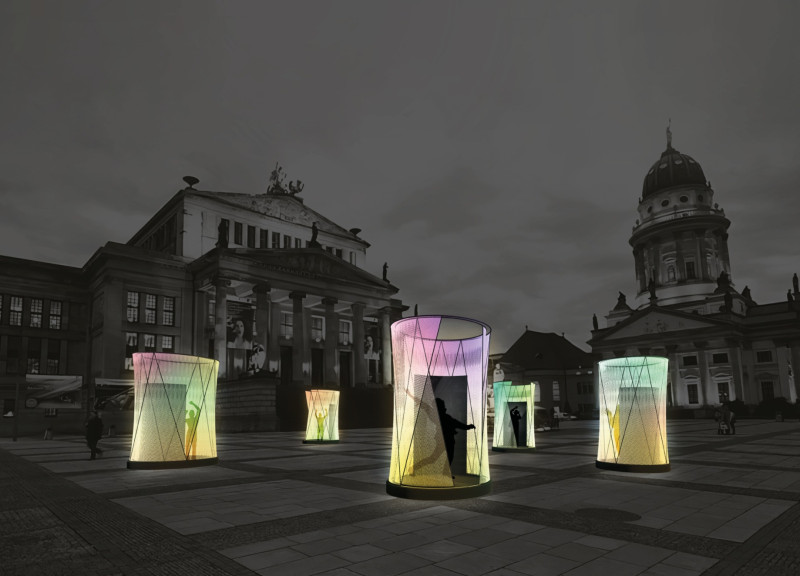5 key facts about this project
The Berlin Techno Booth is located in the vibrant city of Berlin, known for its dynamic techno music scene. The booth serves as a space for social interaction and cultural expression, designed with the realities of a post-pandemic world in mind. It combines a sense of safety with opportunities for community engagement, allowing people to connect and enjoy music in a comfortable setting.
Functional Flexibility
The design of the booth focuses on adaptability, making it suitable for various locations, from empty public spaces to abandoned industrial buildings. Its structure allows for easy setup and removal, creating a temporary yet meaningful impact in these areas. By providing flexible lease options, the booth invites activity and interaction, turning otherwise inactive spaces into vibrant hubs.
Technological Integration
A key feature of the booth is its incorporation of technology to enhance user experience. An app enables visitors to book their sessions and connect with others. This digital interface acts like a social media platform, complementing the physical experience of being in the booth. The shuffle mode feature promotes random connections among users, encouraging spontaneous interactions and enriching the sense of community.
Atmosphere and Lighting
Lighting plays an essential role in shaping the booth's atmosphere. A circular light strip integrated into the pedestal contributes to the overall mood, reflecting the ambiance typical of techno events. This design choice not only adds visual interest but also guides participants as they navigate the booth, enhancing the experience and encouraging exploration.
Materiality and Sustainability
The materials used in the booth are significant in illustrating a commitment to sustainability. The frame is made from recycled steel pipes, which allows for straightforward disassembly and maintenance. The shell is constructed from recycled fiber-drawn plastic. These choices support environmentally responsible practices and ensure that the booth remains both functional and adaptable.
The booth features a two-layer shell that offers privacy while allowing users to maintain visual connections with each other, creating an engaging and communal atmosphere.



















































